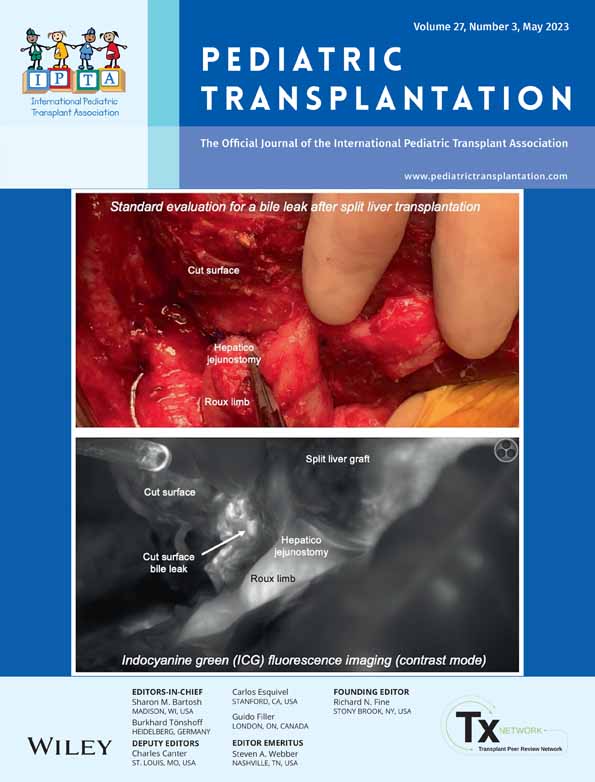Pilot longitudinal kidney transplant transition program promotes peer connections and transition readiness
Abstract
Background
Adolescents who have received a kidney transplant are at high risk of graft rejection and transplant-related comorbidities around the time of transition from pediatric to adult care. While there has been a progress in tracking transition readiness, further work is needed to prepare adolescents for healthcare transitions. We describe a longitudinal cohort-based transition curriculum designed to prepare kidney transplant recipients for adult transplant care.
Methods
Adolescent kidney transplant recipients aged 17 and older participated in the pilot cohort of the 2-year transition curriculum. Session topics included communication with the healthcare team, insurance, job skills, reflective practice, reproductive health, medications, and adult clinic introduction. Surveys were given to obtain narrative feedback, assess participant self-management behavior, and track curriculum knowledge.
Results
Each participant attended an average of two sessions, with 18 out of 30 eligible adolescents participating in at least one session. After transitioning to a virtual platform, there was increased attendance of participants who live greater than 150 miles from the transplant center. Adolescents highlighted the value of the program's group structure to relate to and learn from other participants.
Conclusions
The pilot transition program successfully provided adolescent kidney transplant recipients the opportunity to learn alongside their peers and gain interdisciplinary knowledge to prepare for healthcare transition. The program converted to a virtual platform during the COVID-19 pandemic, with increased accessibility for participants who live further from the transplant center. Group-based programming for adolescents should be enhanced to further prepare them for transitions to adult medicine.
Open Research
DATA AVAILABILITY STATEMENT
The data that support the findings of this study are available from the corresponding author upon reasonable request.




